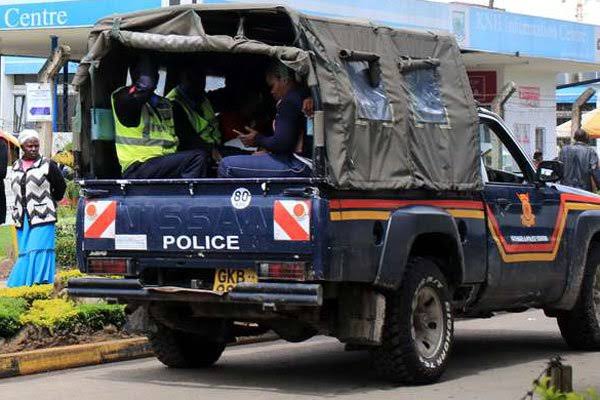KISII, Kenya, Jun 28- A 45-year-old man who was being held at Kisii Police Station awaiting to be transferred to a prison facility has died, after a short illness.
The man, police told Shahidi News, had complained of feeling unwell on Sunday afternoon and was treated and “discharged in fair condition.”
He however developed complications during the night and was rushed back to Kisii Teaching and Referral Hospital- “where he died as he was undergoing treatment.”
He was to serve a jail term after failing to raise a Sh10,000 fine issued by a court in Kisii.
The convict was charged for dealing “with alcoholic drinks without a license.”
The deceased was to be taken to Kisii GK prison, but was being held at the Kisii Central Police Station “waiting for availability of space at the facility, police said.
His body was moved to the morgue, awaiting autopsy.
A boda boda operator who was being held in Rioma police station in Kitutu Chache North Constituency also died while in custody leading to protests that have seen two people shot dead, among them a 16-year-old school going girl.
The boda boda operator was also awaiting to be transferred to a prison facility in Kisii, after he failed to raise a Sh8,000 fine. He was arraigned for flouting COVID-19 rules.
Five other people who took part in the protests are recuperating in various hospital within the County, after they sustained gunshot injuries.
The Independent Policing Oversight Authority (IPOA) has since been asked to move in and probe the incidents.
Police are said to have used excessive force while dealing with the agitated crowd of mostly boda boda operators.
What does the law say about the use of excessive force by police?
The police have the right to use justified force while apprehending a suspect or trying to prevent a crime, and may use lethal or non-lethal means, depending on the circumstance.
According to the current law, for force to be considered justifiable, the threat itself must be unavoidable and immediate, and the amount of force used must be at an appropriate level under the circumstance.
Secondly, justified force must stop once the threat ends, and every shooting should raise the question whether the officers needed to shoot.
The regulations state that an officer may use firearms against any person in lawful custody charged with or convicted of a felony, when that person is escaping or attempting to escape, or any person who by force rescues or attempts to rescue any other person from lawful custody.
Section 19 of the Criminal Law clearly states that the means used to arrest a person must be necessary and degree of force reasonable having regard to the gravity of the offence.
Under the National Police Service Act, firearms may only be used when less extreme means are inadequate to save and protect the life of the officers or other person.
They can also be used in self-defence or in defence of other person against imminent threat of life or serious injury.
The law requires that an officer intending to use a firearm should identify himself and give clear warning of their intention to use the firearm.
However, the warning may not be given where doing so would place the officer or other person at risk of death or serious harm.
Police officers should make every effort to avoid the use of firearms, especially against children.
Any use of firearm, even if there is no injury, must immediately be reported to the superiors.
If the use of firearm results to death or serious injury, the case should be reported to the Independent Policing Oversight Authority (IPOA) to investigate.
Before reporting the matter to IPOA, the officer must secure the scene for purposes of investigations, and notify the next of kin as reasonably practical.
Want to send us a story? Contact Shahidi News Tel: +254115512797 (Mobile & WhatsApp)


